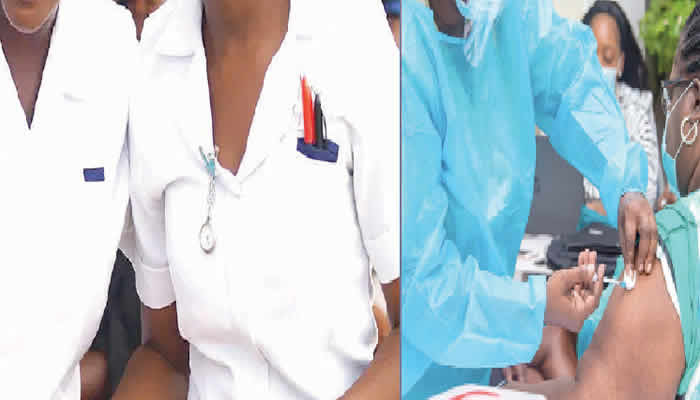The National Association of Nigerian Nurses and Midwives (NANNM), Federal Health Institutions chapter, has vehemently rejected a recent circular from the National Salaries, Income and Wages Commission, deeming it unjust and dismissive of the crucial role nurses play within the nation’s healthcare system. This contentious circular, issued on June 27th and titled “Review of Allowances for Medical/Dental Officers in the Federal Public Service,” has sparked outrage among nursing professionals due to its exclusion of nurses from crucial allowance revisions, effectively widening the disparity between medical doctors and other healthcare professionals. The NANNM-FHI argues that this omission not only undervalues the significant contributions of nurses, who constitute a substantial 60-70% of the healthcare workforce, but also undermines the collaborative spirit essential for effective healthcare delivery.
At an emergency National Executive Council meeting held in Abuja, the NANNM-FHI expressed profound disappointment with the unilateral nature of the circular’s issuance, highlighting the lack of prior consultation with the association despite the profound implications for a majority of healthcare workers. NANNM-FHI President, Morakinyo-Olajide Rilwan, articulated the association’s grievances, emphasizing the circular’s failure to address critical allowances owed to nurses, including shift, uniform, specialist, call duty, and retention allowances. These allowances, according to Rilwan, are not mere perks but essential components of fair compensation that recognize the demanding nature of nursing and the sacrifices nurses make daily.
The inadequate shift allowance, currently a mere 8.5% of basic salary despite a 2009 circular approving 30%, was a key point of contention. Rilwan highlighted the demanding nature of nursing shifts, with nurses often spending extended hours attending to patients and their families. Furthermore, the current uniform allowance fails to reflect the reality of nurses needing to change uniforms multiple times a day due to the nature of their work, necessitating at least three uniforms per week. He stressed that these uniforms are not optional but essential for maintaining hygiene and professionalism within the healthcare environment.
Beyond the basic necessities of shift and uniform allowances, Rilwan addressed the discriminatory nature of the specialist allowance, which currently excludes specialist nurses. He argued that nursing, like medicine, encompasses various specialized fields, and nurses with specialist qualifications deserve equal recognition and compensation for their advanced skills and expertise. This selective application of the specialist allowance further exacerbates the feeling of devaluation among nurses and contributes to the brain drain phenomenon, with skilled nurses seeking better working conditions and recognition abroad. Rilwan emphasized the urgent need for the government to prioritize the retention of these highly trained professionals to prevent further depletion of the nursing workforce.
The NANNM-FHI also raised concerns beyond remuneration, calling for the reconstitution of the dormant Governing Board of the Nursing and Midwifery Council of Nigeria and advocating for the inclusion of nurses on the boards of Federal Health Institutions. This representation, they argue, is crucial given that nurses comprise the largest segment of the healthcare workforce. The removal of nurse educators, particularly those on grade levels 7 and 8, from clinical duties despite their vital role in training student nurses was another point of contention. Rilwan pointed out the contradiction inherent in the circular’s recommendation to pay trainers while simultaneously sidelining those actively involved in training the next generation of nurses. The association emphasized the importance of integrating clinical practice with education to ensure that student nurses receive comprehensive training.
Furthermore, the NANNM-FHI advocated for mandatory internship placements for university-trained nurses, enabling them to participate in the National Youth Service Corps (NYSC) scheme. Rilwan proposed a centralized system for these internships to ensure uniformity and quality across the board, providing a standardized platform for newly graduated nurses to gain practical experience and contribute to the national service program. This, according to the association, would not only benefit the individual nurses but also enhance the overall quality of healthcare delivery across the nation.
The establishment of a dedicated Department of Nursing within the Federal Ministry of Health was another key demand put forth by the NANNM-FHI. They argued that while a Director of Nursing exists, the absence of a formal department hinders the effective management and development of the nursing profession. Rilwan proposed the creation of directorates within this department to focus on training, statistics, and clinical practice, enabling a more structured approach to addressing the specific needs and challenges within the nursing profession. This formalized structure, they believe, would provide a platform for strategic planning and policy development, ultimately strengthening the nursing workforce and improving healthcare outcomes.
While expressing openness to dialogue and engagement with the government, the NANNM-FHI made it clear that they expect a timely and appropriate response to their demands. Rilwan warned that the failure of the government to address these critical issues and engage in meaningful dialogue could lead to industrial action, potentially disrupting healthcare services across the nation. The association firmly believes that addressing these concerns is essential not only for the well-being of nurses but also for the overall health and well-being of the Nigerian population. Their call for fair treatment and recognition underscores the vital role nurses play in the healthcare system and the need for their contributions to be valued and adequately compensated.














